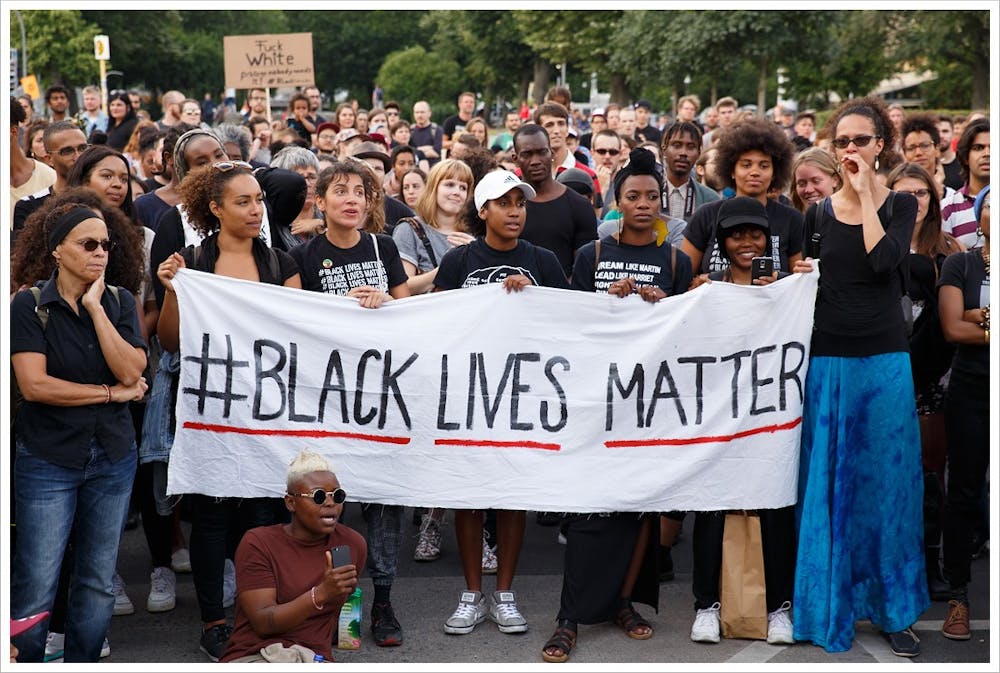Of all the phrases tossed around in the arena of politics and punditry, none brings me more bemusement than “the leaders of the Black community.” I’ve heard about these leaders in precept, in the news, on Twitter, everywhere. They are never named, nor is the community in question given any tangible bounds, which leaves my mind free to wonder: Who are they? Oprah Winfrey? Barack Obama? Serena Williams? Reverend Al Sharpton? Dave Chappelle? Lizzo? Who are the few individuals empowered to act as the singular voices of the entire Black population?
This is a ridiculous question, and I use humor to help draw out my point. No individual — or group of individuals — can speak on behalf of the 42 million Black people in the United States. The Black community is not a monolith with one set of interests or beliefs. To act like this is the case — by referencing the anonymous and mysterious “leaders of the Black community” — denies individuality and fuels stereotypes.
To unpack this further, I’m going to turn to a recent example: the presidential candidacy of Kanye West. Some feared that he would split the Black vote and weaken current President-elect Joe Biden’s chances. To be sure, some Black people did vote for West. His supporters’ reasons ranged from identifying with his experience as a Black man from the inner city to dissatisfaction with the current two-party system. He only racked up 60,000 votes nationwide, however, and polled at 2 percent among Black Americans, not nearly enough to pose a formidable threat to Biden.
Likewise, it would be incorrect to state that the Black vote simply went to Biden because of Donald Trump’s record of racist remarks (and actions) that stretch back to the 1970s. In fact, Trump made gains among Black voters in this election, especially among Black men.
I can’t tell you why, but I’ll tell you what this shows: Black people aren’t a monolith, not on what’s the best path for the country or who’s the best candidate. Not even on why that individual is the best candidate. Even within the majority of Black voters who supported Biden, there’s no consensus on what should be next or whether they trust he will keep his promises.
To be clear, acknowledging Black Americans’ individuality does not mean that improving representation or paying special attention to the issues they face is meaningless or unnecessary. Politicians who have lived experiences of disadvantage, such as Representative-elect Cori Bush of Missouri’s 1st district, often represent voices their more privileged colleagues may overlook or disregard. Increasing representation also sends a clear message to young Black people that they are important and that their talents should be cultivated in spite of a societal structure that maintains otherwise.
Listening to and uplifting Black voices is distinct from expecting Black individuals to speak for an imagined, monolithic group. Many Black Americans do consider race an important part of their identity and feel connected to a broader Black community in the United States.
This sense of connection does not, however, imply the existence of the bizarre hive mind that vague references to “the leaders of the Black community” suggest. There are lived experiences that are widely shared, but one’s entire identity doesn’t — and can’t, if life is to be tolerable at all — revolve around oppression. There is no shortage of Black leaders known and respected by communities both narrow and broad, local and national. Still, it is dehumanizing to assume that any given Black person — no matter how famous or accomplished — can speak on behalf of every other Black person.

Ultimately, everything I’ve mentioned thus far evidences the need for nuance. We can acknowledge that systemic racism has unique and severe impacts on the lives of Black Americans without mandating that they speak with one voice.
Brittani Telfair is a junior from Richmond, Va. concentrating in the School of Public and International Affairs. She can be reached at btelfair@princeton.edu.









